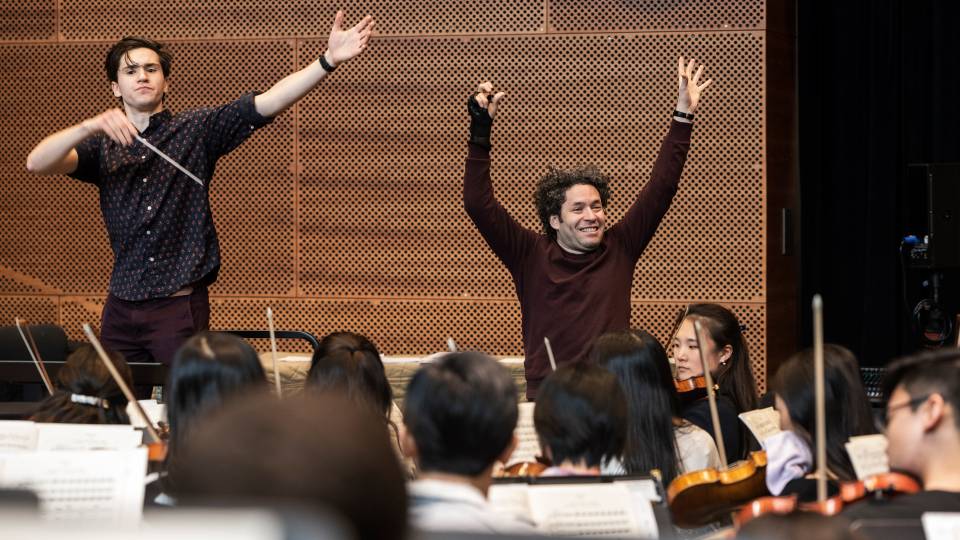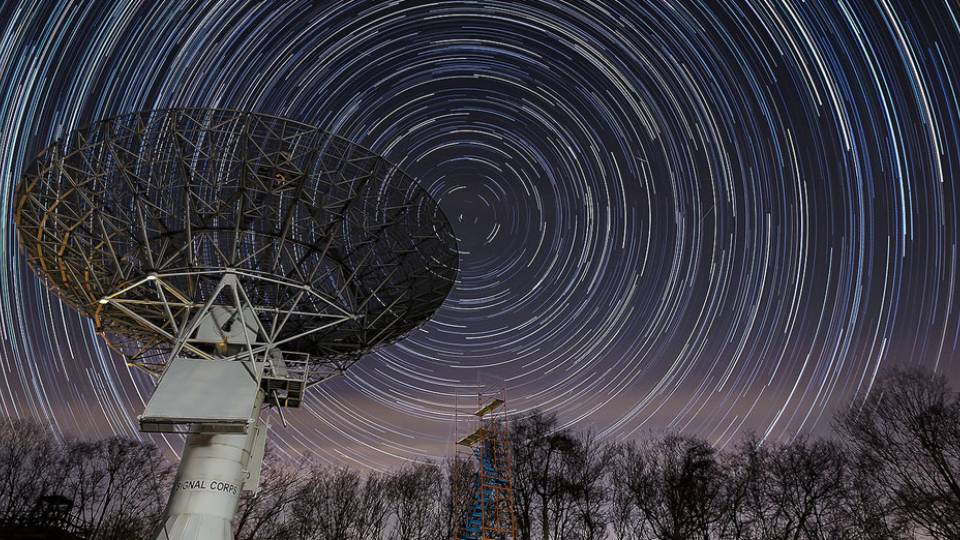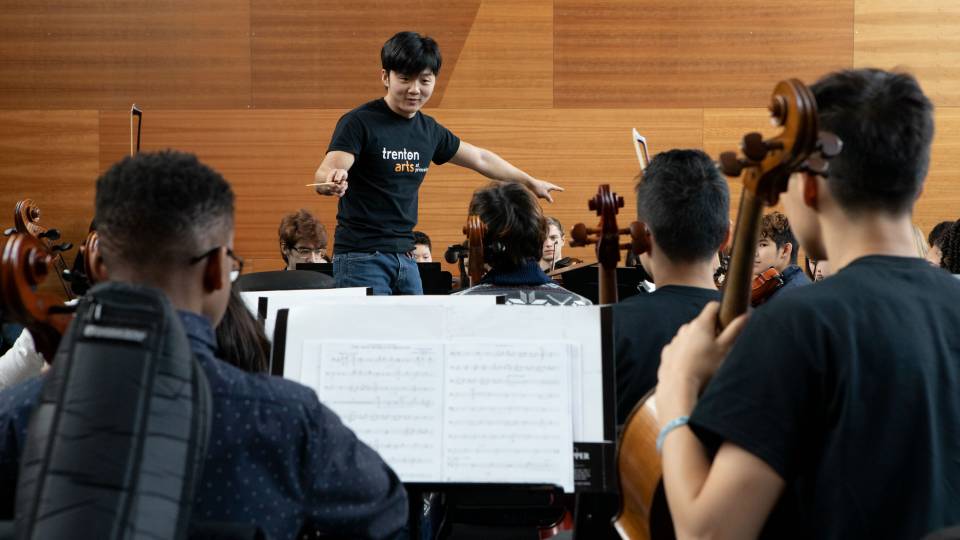Fundamentals of physics found in the sound of music
It was the week after spring break and the freshman seminar hadjust finished a detailed discussion of the violin and the uniquequalities of its sound. Freshmen Lauren Carpenter, a violinist, andDaniela Smolov, a pianist, came to the front of the room to play amoving duet from the opera "Orpheus and Eurydice" by the 18th-centurycomposer Christoph Gluck. The class fell silent as the room filled with sound.
The final notes faded away and the class, mostly musicians, burst into applause.
It may have seemed like an introductory music class, but the roomwas on the fourth floor of the Jadwin physics building. On theblackboard behind Carpenter were mathematical expressions of Newton'slaws. Smolov was playing an electronic keyboard that sat -- surroundedby a computer, cables and microphones -- on the plywood top of a gray metal lab cart.
The class is Freshman Seminar 110 "Sound, Music and ... Physics" taught by Pierre Piroué , the Henry DeWolf Smyth Professor of Physics Emeritus.
Piroué created the class this year to harness students' naturalinterest in music as a vehicle for introducing them to physics. Hisgoal is to draw students who may not naturally be inclined toward thesciences into the wonders of the physical laws that govern everything from the character of arpeggios to the birth of stars.
"The approach is to teach physics, but to start with music," saidPiroué. "When you start with music, you have a common background. Younever ask somebody, 'Do you like music?' You ask, 'What kind of music do you like?'"
Piroué's idea for the class began to take shape when he retired in2001 after more than 40 years as a leading particle physicist. Notcontent with slowing down, he was intrigued when Daniel Marlow, chairof the physics department, suggested that he develop a freshmanseminar. They kicked around a couple ideas, and Marlow suggested the physics of music as a topic.
"It clicked for me, because, as everyone knows here in thedepartment, I am interested in music," Piroué said. He studied pianountil he was 18 and picked it up again about 10 years ago. Since then,he has played many times in an annual recital for musicians associated with the physics department.
The full story is available in the Weekly Bulletin.
Contact: Evelyn Tu (609) 258-3601




